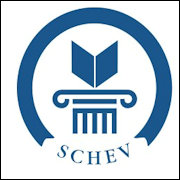
Think of SCHEV as the Commonwealth Transportation Board of higher ed — but with bigger staff and more responsibility.
Someone asked me the other day what the State Council of Higher Education for Virginia (SCHEV) does. It monitors and coordinates the state’s public universities, I said. But what does it actually do, my friend said. Well, I replied, it puts together a strategic plan for higher education, and it maintains a lot of databases, and conducts a lot of analysis. But does it actually have any power, my friend persisted.
Well, I’m just a couple of months into covering higher education as a beat, and I’m still learning. But during a board meeting held at the Virginia Military Institute in Lexington, I learned yesterday of at least one substantive power SCHEV exercises. Colleges and universities wanting to implement new academic programs must obtain SCHEV approval. And the organization does not rubber stamp requests.
Three proposals came before the Council yesterday — two were approved but one, an Old Dominion University request to launch an M.S. program in sports management, was kicked back to the university for re-tooling.
The Council approved a request by Tidewater Community College to establish an Associate of Fine Arts degree. The degree is designed specifically to ease the transfer of TCC students to Virginia Commonwealth University’s Bachelor of Music Program. The new degree will allow students to complete their bachelor’s degree with an estimated 124 credit hours rather than the 144 that would have been required otherwise. Those 20 credit hours represent a significant savings in time and tuition to the transferring student, and the program advances SCHEV’s goal of providing a lower-cost pathway to a B.A. degree than a full stint at a four-year institution.
The Council approved a similar J. Sargeant Reynolds Community College program providing an Associate of Science degree to community college students seeking to earn a science degree at a four-year institutions. The logic was similar: to grease the transition between community college and four-year college.
But the ODU sports management program encountered heavy skepticism in SCHEV’s Academic Affairs and Planning Committee, and that committee recommended that the program not be approved at this time.
ODU has long offered a physical education degree with a concentration in sports management. But the university wanted to expand the concentration to a standalone program because sports management needs a pedagogically distinct curriculum. Additionally, claimed ODU, there is a strong industry demand in Hampton Roads for master-level graduates in sports management.
But SCHEV staff concluded otherwise, primarily on the grounds that no documentation exists of the proffered demand in the Hampton Roads sports industry. Moreover, a 2015 study of sports management master’s degree programs generally found that not only were sports management graduate degree holders earning less than other graduate degree holders, but they were earning less than those with a bachelor’s degree.
Rather than rejecting the request outright, the SCHEV board asked ODU to re-try to strengthen the program. (For details, see the SCHEV board’s March agenda book, beginning page 26.)
Thus, dear reader, while Virginia does maintain one of the most decentralized systems of higher education in Virginia, the state oversight body is far from toothless. Colleges and universities can not create expensive new programs, departments and schools without SCHEV’s blessing. Staff analyzes the student demand and market demand for each request and examines possible duplication with programs at other institutions to ensure that the investment of resources is justified. In that way, the Council is comparable to the Commonwealth Transportation Board, which has the final say over transportation funding projects.
Furthermore, SCHEV’s powers and prerogatives will expand this year thanks to 12 new responsibilities assigned it by the General Assembly. Most are arcane items that would mean little to the general public. But at least one will give the Council a significant role in economic development: developing the Commonwealth Research and Technology Strategic Roadmap. This planning tool will identify research areas worthy of economic development and institutional focus. Priority projects will receive grants from a $2.8 million funding round this year from the Commonwealth Research Commercialization Fund.
Every arrangement has its advantages and disadvantages. Virginia’s decentralized model of higher ed certainly has flaws — and I will not hesitate to point them out when I encounter them. But by common estimation, Virginia has one of the best, if not the best, systems of higher education in the country. The SCHEV model of measuring, monitoring and lightly regulating Virginia’s colleges and universities has much to recommend it.


